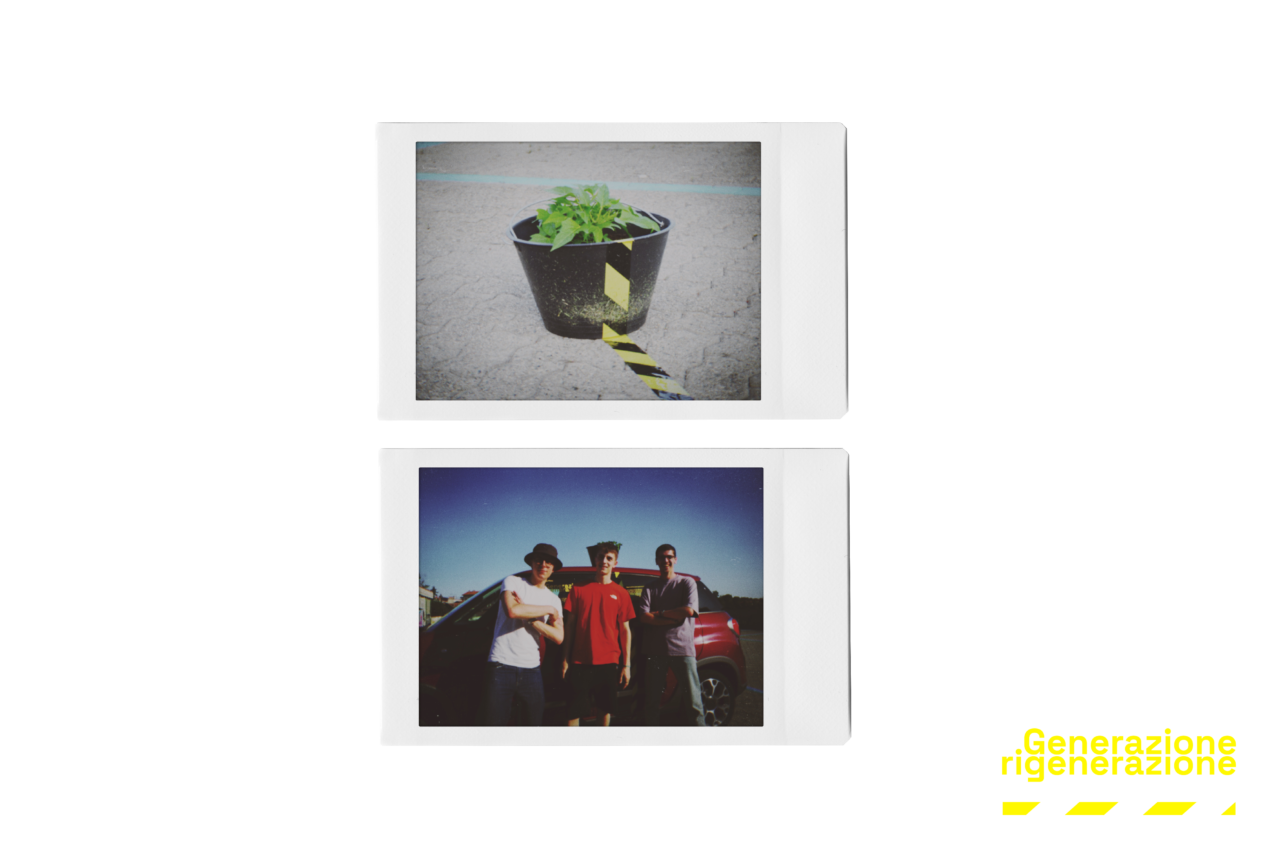Generazione-rigenerazione

Project details
- Year
- 2023
- In collaboration with:
- C41 Magazine
- Programme
- Bachelor – Spatial Design
- Practices
- autonomous
- Minor
- Digital Craft
The contamination of the soil is one of the main forms of environmental degradation. It is caused by the release into the environment of massive amounts of organic and inorganic chemicals that settle on the ground, particularly associated with atmospheric depositions resulting from emissions from industry, vehicle traffic, dispersion of pesticides, fertilizers, and livestock manure in agriculture. Understanding and quantifying the main phenomena that determine diffuse soil contamination is of considerable importance, indeed, in recent years, there has been growing concern about the impact of conventional agricultural practices on soil health and fertility.
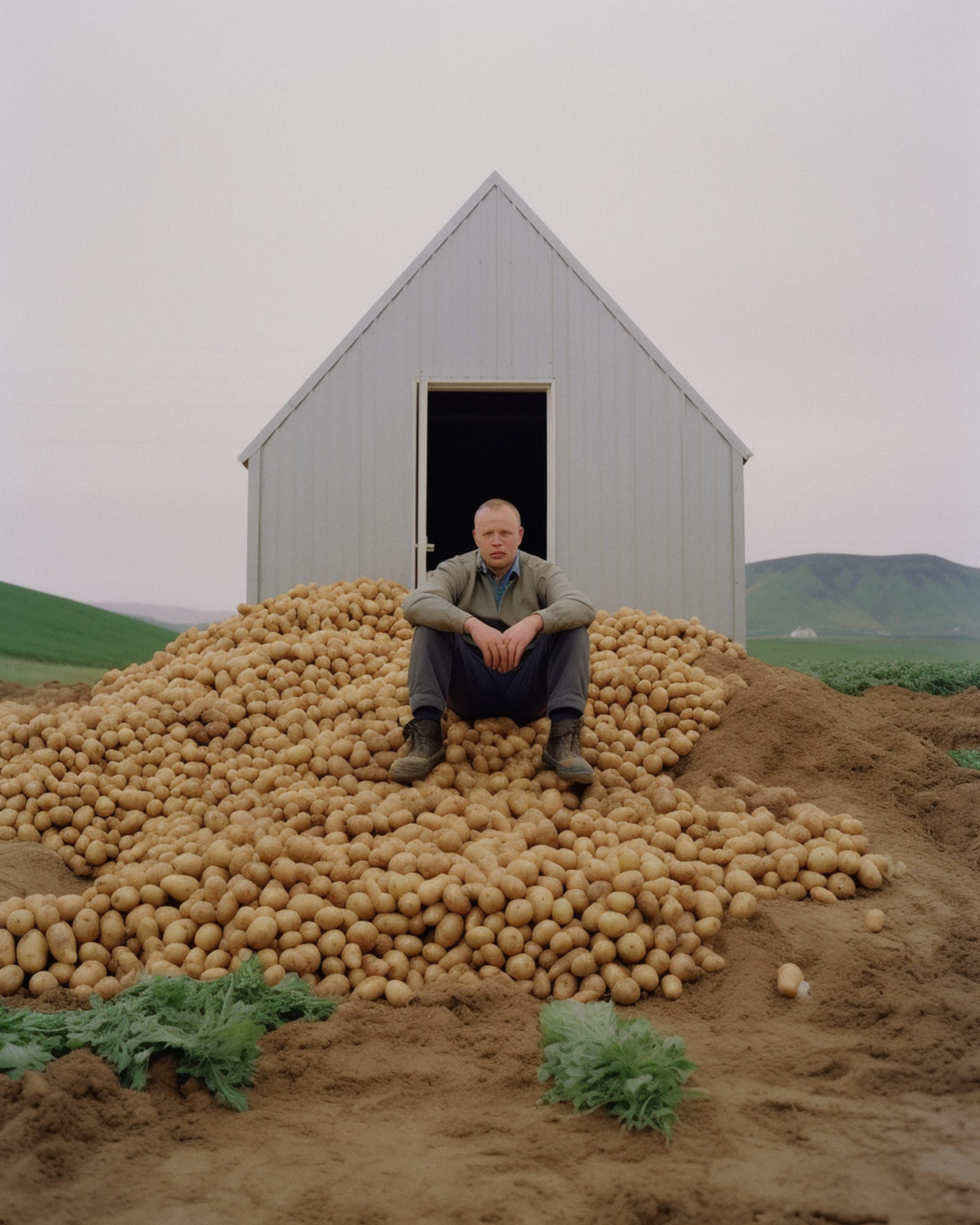

The Graduation Project marks the beginning of a series of projects intricately linked to the theme of environmental conservation; as an artist, my intention is to create thought-provoking works that go beyond mere entertainment and encourage the audience to question the role of nature in our ecosystem.

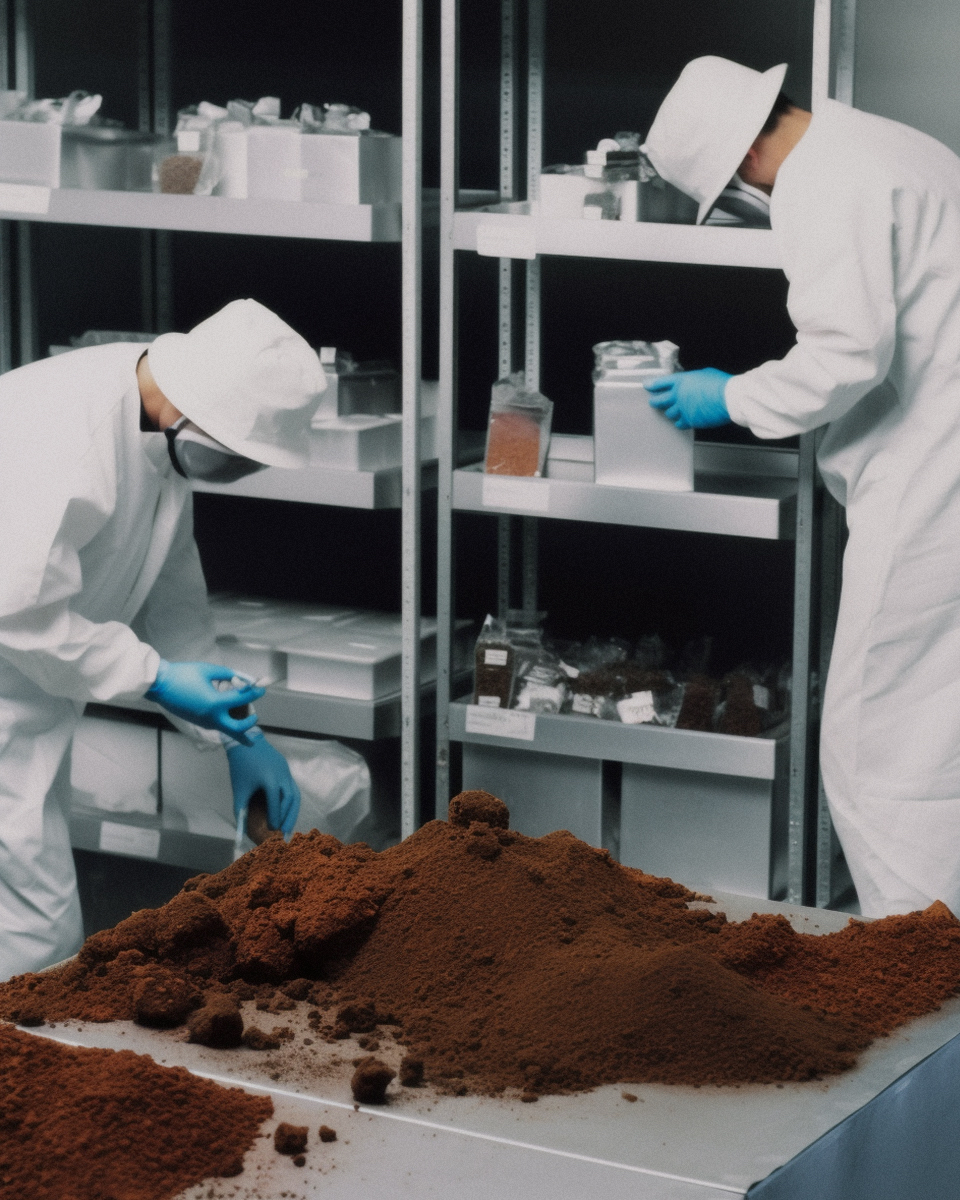
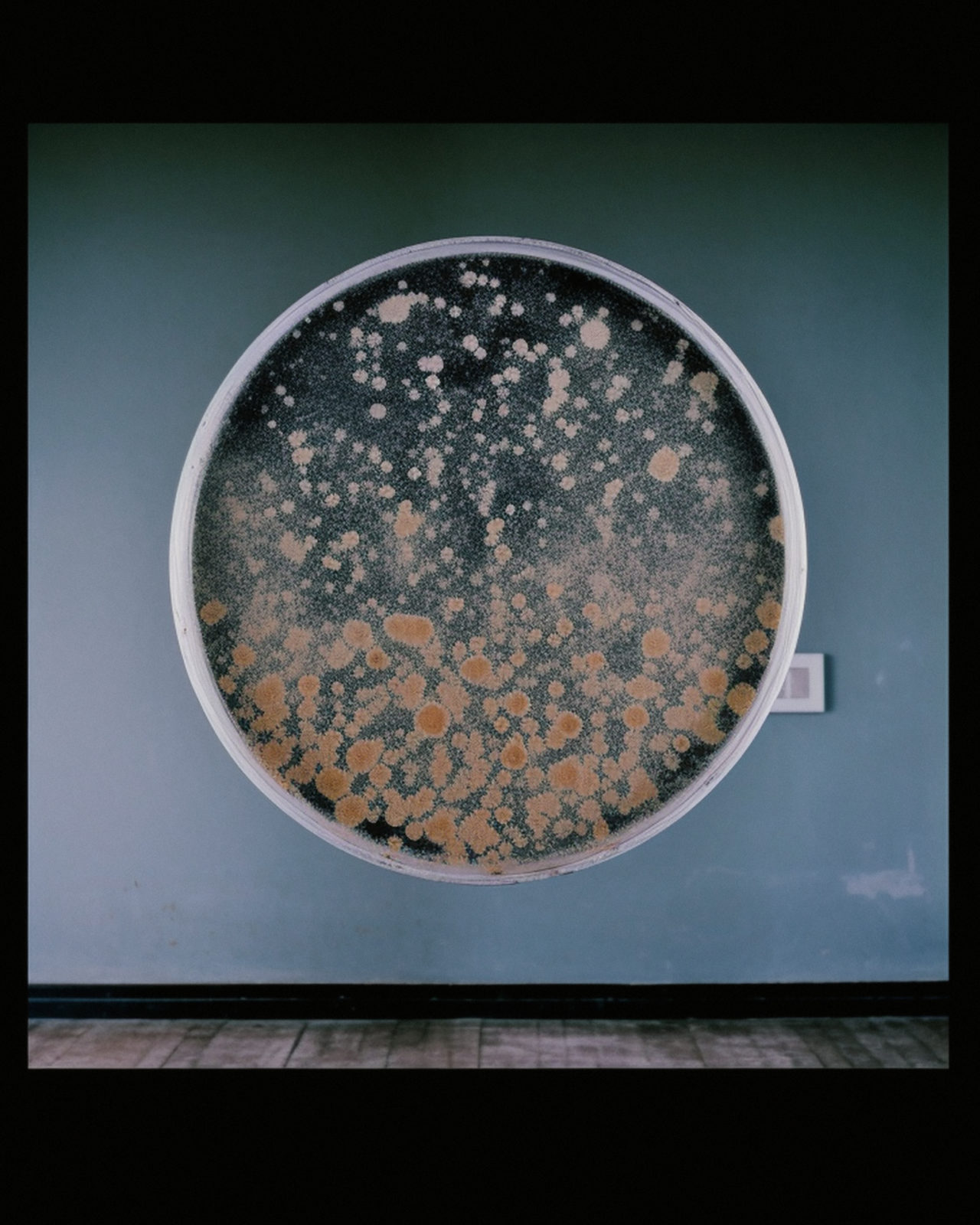

Through this project, I aim to raise awareness about Regeneration, a radical new approach to addressing the climate crisis. My thesis journey unfolded as an opportunity to develop my artistic vision in relation to curatorship, with the intention of sensitizing people to this issue through an editorial project, a short film and a installation located in the town of Ivrea, Italy. The installation takes the name from the project, Generazione-rigenerazione (Generation-regeneration), and it intends to communicate to local visitors the significance of building a regenerative future—a future where nature thrive.
When selecting the main character for the project, I found sweet potato to be a perfect fit, as it is a highly adaptable crop that responds positively to an increase in atmospheric CO2 concentration. This is because CO2 has a direct effect on photosynthesis and stomata physiology, resulting in a higher yield of storage roots. Unlike other crops, sweet potato relies mainly on the formation and development of storage roots rather than the aerial parts.
As we strive for a future where our actions not only sustain but also rejuvenate the Earth, it becomes evident that the most promising path to addressing the environmental crisis lies in the concept of Regeneration, a light of hope, and, most importantly, a comprehensive approach.
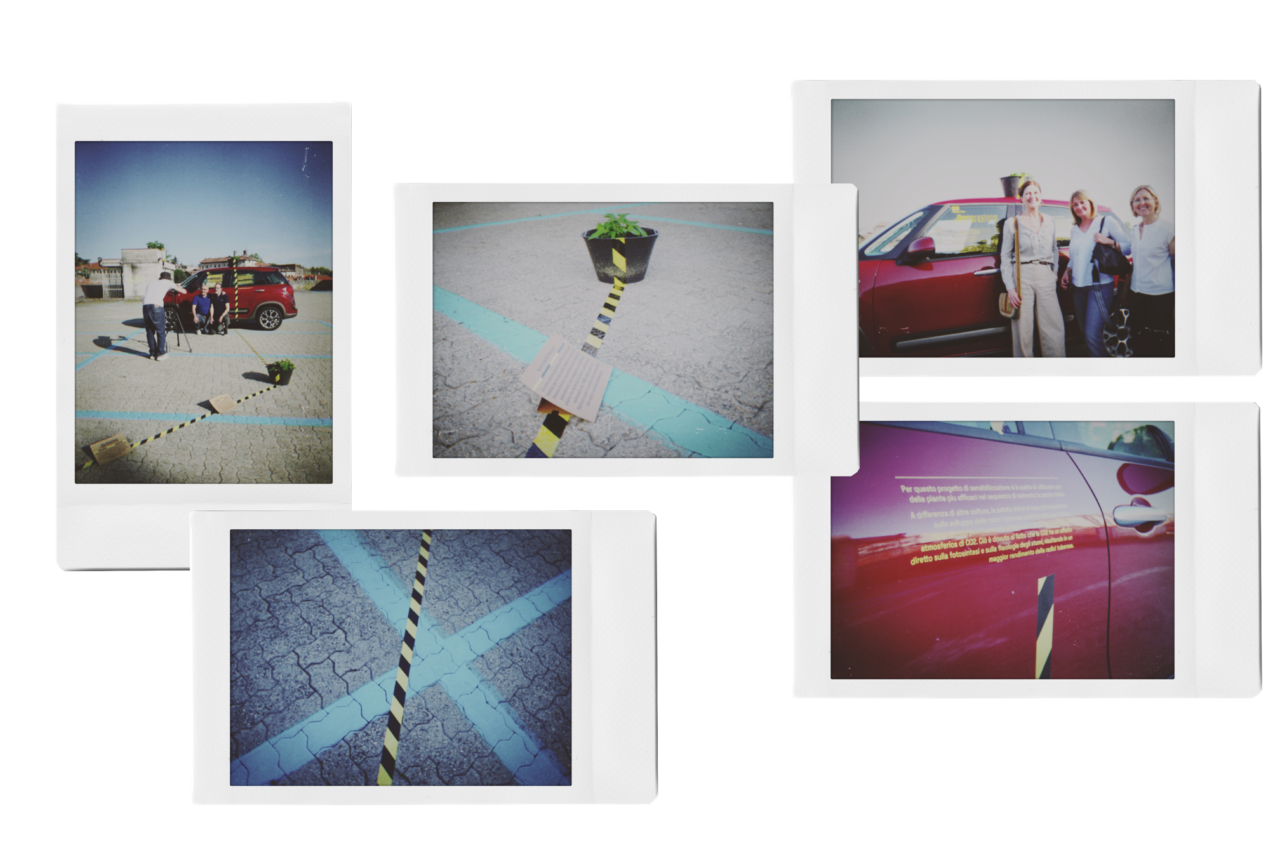
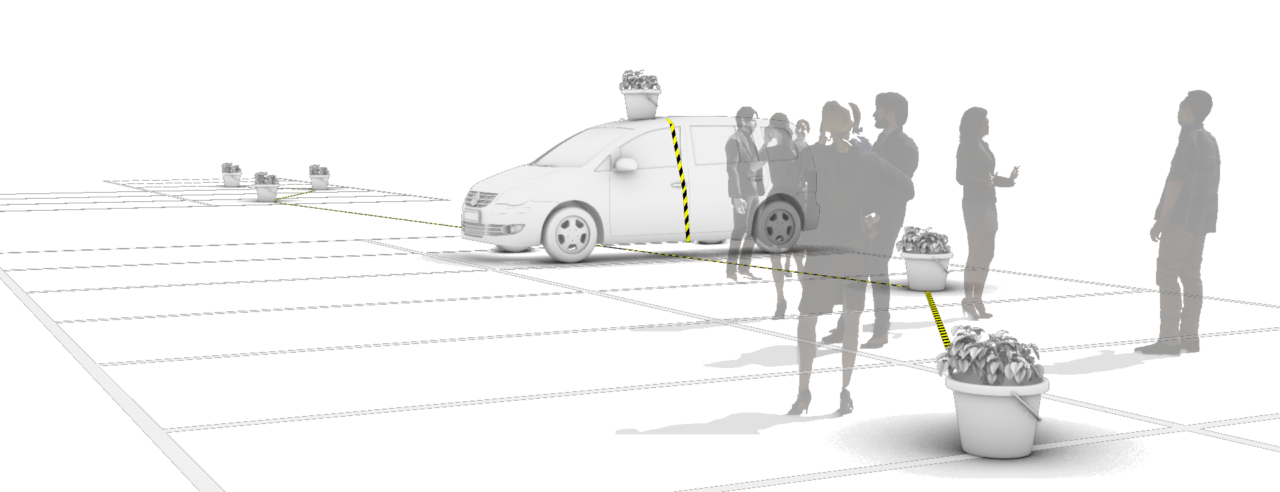
As I delved deeper into environmental protection’s studies, the decline in soil health in the Piedmont Region of Italy has caught my attention, sparking a deep interest in exploring the potential of Regenerative Agriculture practices within this area. One key factor that has emerged is the importance of soil organic matter, with strategies that enhance the capacity of plants to store carbon, thereby stabilizing the climate, restoring ecosystems, and ensuring the security of our food supply.
